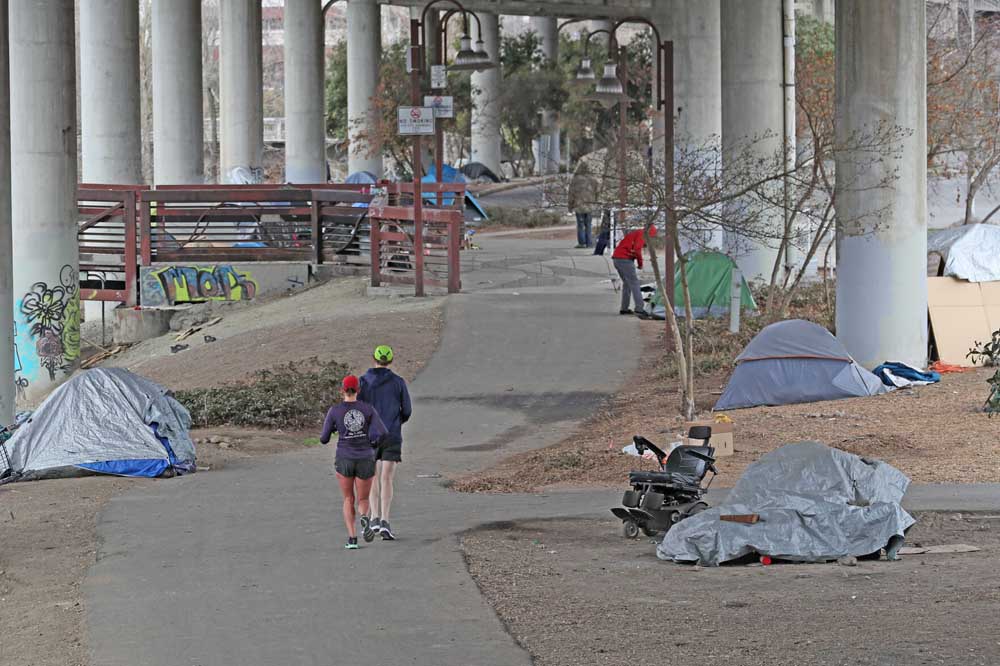U.S. District Court judge sides with Medford in homeless camping case
Published 2:30 pm Tuesday, April 9, 2024

- Joggers pass camping tents beneath the Interstate 5 viaduct near downtown Medford in this March 2023 file photo.
A U.S. District Court judge has dismissed a civil rights lawsuit filed by six homeless individuals who challenged the city of Medford’s homeless camping ordinances.
Judge Ann Aiken wrote in a two-page order Thursday that she found “no clear error” in U.S. Magistrate Judge Mark D. Clarke’s findings and recommendations, which sided with the city on all claims, and upheld the constitutionality of the camping ordinances.
Trending
Clarke had forwarded his findings and recommendations, issued Jan. 16, for Aiken’s review. Aiken noted that she did not have to conduct a new review of the case since none of the parties filed objections to Clarke’s findings and recommendations. Nevertheless, Aiken said she had an obligation to make a final determination.
Kristina Wilson, the city’s communications manager, said in a statement that Medford is pleased with the ruling.
“This recent ruling supports the City’s comprehensive set of regulations which seeks to preserve the usability of public spaces while also respecting the Eighth Amendment rights of unhoused individuals,” Wilson said. “Additionally, the City appreciates the Court’s recognition that the City’s multi-faceted approach to the homelessness crisis meets applicable constitutional standards.”
Justin Rosas, the attorney for the six homeless residents, did not immediately respond to request for comment Tuesday.
Rosas filed the class-action complaint in May 2021. In it, he alleged on behalf of the residents — Andre Bilodeau, Robert Bessy, Amber McNab, Greg Killingsworth, Travis Greiner and Ronda Bjork — that the city maintained a web of unconstitutional ordinances, such as a prohibited camping ordinance, that put time-place-manner restrictions on unauthorized camping.
The residents argued that Medford’s policies violated the constitutional right to be free from cruel and unusual punishment, among other rights they said the city infringed upon.
Trending
Rosas asked the court to issue a declaration stating that Medford’s enforcement of its civil exclusion zone and anti-sleeping and camping ordinance is unconstitutional. He also asked the court to prohibit the city from enforcing the exclusion zone and ordinance.
In June 2023, Casey S. Murdock, an attorney representing the city, asked for summary judgment by Clarke and that all claims against Medford be dismissed.
Murdock argued that the city’s policies did not violate the homeless residents’ constitutional rights, in part because Medford does not enforce a citywide ban of their activities and instead uses the time-place-manner form of enforcement. In addition, homeless residents can utilize various forms of shelter, which Medford supports, Murdock said.
Murdock also argued that the city’s prohibited camping ordinance is a direct response to a U.S. 9th Circuit Court of Appeals ruling which held that only cities with enough beds to provide their homeless population can enforce anti-camping ordinances. Murdock claimed Medford had enough beds, citing weekly data by the Medford Police Department’s Livability Team.
Rosas can appeal Aiken’s ruling to the 9th Circuit.








